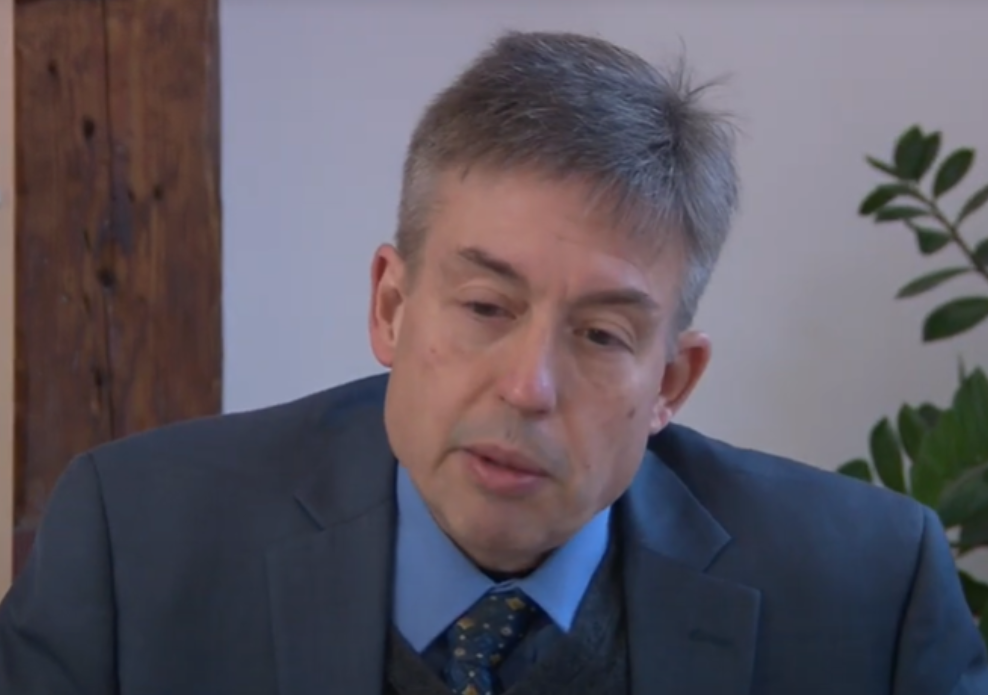“In Slovenia, the poison lobby is trying to legitimise the medical poisoning of the sick and elderly at any cost,” said Aleš Primc, President of the Voice for Children and Families movement (Glas za otroke in družine). He and Metka Zevnik, President of the Association of Grandparents, are strongly opposed to the legalisation of euthanasia, which has been filed into the National Assembly’s procedure in July last year.
Aleš Primc and Metka Zevnik believe that legalising medical poisoning would quickly get out of hand, as has happened in Canada, as confirmed by Alex Schadenberg, Director of the Canadian Euthanasia Prevention Coalition. Since the introduction of euthanasia in 2016, 3,241 people were already “executed” in 2022 alone, accounting for more than four percent of all deaths in Canada in 2022. The increase compared to 2021 was more than 30 percent, which is why there is talk of an epidemic of “medically assisted poisonings”.
“In Slovenia, the poisoning lobby is trying to legalise the medical poisoning of the sick and elderly at any cost,” Primc said, adding that in Canada, it has been shown that the poisoning lobby is actively working to poison as many of the sick and elderly as possible. Last July, a draft law on voluntary end of life was tabled in the National Assembly, which was strongly opposed by the Voice for Children and Families movement and the Association of Grandparents.
“I hope that the deputies will not adopt the law on voluntary end of life, because the sick and the elderly need help, compassion, family and pain relief, not execution,” Primc pointed out.
Meanwhile, Metka Zevnik, President of the Association of Grandparents, pointed out that the tabled bill has very similar wording to the Canadian law and that the Slovenian proposal, like those of many other countries, is characterised by the fact that it speaks of assisted end of life or a “kind death”.
The Silver Thread Association is the author of the “cult of death” law
The Silver Thread Association (Društvo srebrna nit) was the initiator of the law, but the majority of the medical profession rejects it, believing that the debate should go in the direction of increasing access to palliative care, which is poorly regulated in our country.
The promoters, however, are trying to pass the law as being full of compassion and humanity, and a cynic would say that this is a very grotesque solution to our demographic and public healthcare problems, using the more sophisticated method from 1945. Experience from Western countries shows that it is basically a death cult, offering the desperate (not necessarily the terminally ill) a lifeline to which many will cling.
Zevnik: many things are not clear in the law, but the type of poison and the finances are clear
Regarding the Slovenian draft law, Zevnik pointed to an important feature, namely “the manipulative nature of the language, which tries to convince decision-makers and people that it is about compassion and charity by using emotional terminology.” The Slovenian proposal contains only a few well-defined facts and concepts concerning logistics and the filling in of documents, but leaves open a wide field of ambiguities, including the burning question – why allow a person to be executed at all?
Zevnik is surprised that, on the other hand, it is very precisely defined with what, how and with how much poison someone should be poisoned, and the costs are also precisely defined, “here we have it written that the poisoning process costs 1,542.25 euros.”
Canada should serve as a warning
Zevnik believes that the euthanasia law is about regulating the pension system, as they want to make euthanasia available for people with physical and mental disabilities, who are considered to be a burden to society. Canada is currently facing similar problems, as pointed out by Alex Schadenberg, Director of the Canadian Euthanasia Prevention Coalition.
Schadenberg has pointed out that people in Canada were also told that euthanasia would only be used in extreme cases and for people who were suffering and close to death, “but the opposite has happened.” Schadenberg points out that the issue has spread, and now even euthanasia of the mentally ill, children and newborns is being discussed in Canada.
Tanja Brkić


